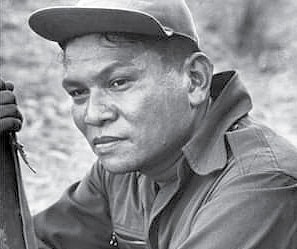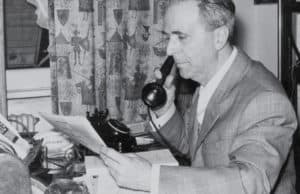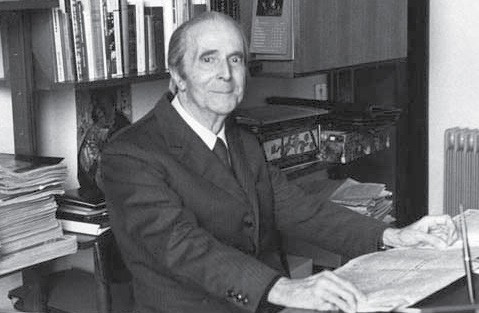President Ramon Magsaysay (term in office from December 30, 1953– March 17, 1957) already gave the solution as to where to start and where to look regarding politics during his time.
One of his famous quotes said more than 60 years ago are still relevant today: “This country (the Philippines) is like a pyramid, like a tower. It is made up of millions of stones… and the foundation stone of this pyramid is the common man. . . I believe that he who has less in life should have more in law… Guns alone are not the answer. We must provide hope for young people for better housing, clothing and food; and if we do,
the radicals will wither away… The mistake the world is making with the simple peoples is to try and hurry them into political concepts they don’t understand and aren’t prepared to cope with. I know. I am a peasant myself… I say, ‘Spit on the big, fancy schemes.’ I want all the little things first. Then perhaps we can get on to the bigger things.”
If this quote can be lived today, politics would indeed be focused only on caring and increasing the common good of the people.
Magsaysay’s Common Man
Let’s analyze the quote. Magsaysay highlighted first the “common man” as the foundation stone of our country. The common man here represents the whole Filipino people, the main source, means and goal to achieve the common good that the government has to work for in the affairs of the State.

At that time, Magsaysay set the emphasis on those who are underprivileged, easily interpreted as suffering poverty, marginalized and less educated, and with lesser opportunities and have to be protected by law instead of being exploited. Armaments needed for defense don’t prevent violence; in fact, in this day and age, even social media has been weaponized and has become an instrument of war to bully or impose one’s ideas or to influence others.
Yet applying the true sense of social justice to satisfy the basic needs of our people, especially the youth, can curtail extremism and radicalism. Lastly, President Ramon Magsaysay encouraged politicians to be more concrete, simple and practical in their concepts by being more faithful in doing small things that everyone understands, things that need to be done in order to be prepared one day to make the bigger decisions in life.
The Common Good and the Value of Spiritual Poverty
Another quote that seems applicable in today’s world is from the American politician Fisher Ames (1758-1808) who once said: “Politics is the science of good sense, applied to public affairs, and, as those are forever changing, what wisdom today would be folly and perhaps, ruin tomorrow. Politics is not a science as proper as a business. It cannot have fixed principles, from which a wise man would never swerve, unless the inconstancy of men’s view of interests and the capriciousness of the tempers could be fixed . . . The happiness of a people, and the good order and preservation of civil government, essentially depend on piety, religion, and morality.”
What’s happening in the world today is totally the contrary. Governments of many countries merged together for example to create partnerships like the European Union (EU) with 28 member states, the Association of Southeast Asian Nations (ASEAN) with 10 countries, the African Union (AU) with 55 sovereign states or the United Nations (UN) with 193 nations.
They all work in tandemto address issues of common concern and interest in various areas like cultural and national identity, economy, education, developing a foreign policy that unites rather than separates or improving health, peace and order issues, stability or security and many more. When everyone works to address these concerns and interests, the common good is certain to be taken care of.
Unfortunately, the majority of people in power would primarily consider riches the object or rather the source of the more popular philosophy and politics nowadays. It has become the most sophisticated idol that parties and governments have been more corrupted because of their obsession with it. Foreign policy, instead of creating unity to give support and promote the common good, is treated more like a form of business reduced to branding.
Evidently, those in power have always great influence in working for the common good. However, Fisher Ames reiterated: “Politics cannot have fixed principles, from which
a wise man would never swerve, unless the inconstancy of men’s view of interest and the capriciousness of the tempers could be fixed.”
On my part, I only see that people from richer countries, due to the influx of migrants, have become so concerned about national interests not for love of their culture or country or the common good but more out of self-preservation and defense from a perceived threat. Examples of these are the United Kingdom’s BREXIT issue, the recent sending off to prison of a mayor in Southern Italy who helped migrants or other countries who would resort to spying or even hacking into other governments’ IT systems either to influence public opinion or simply to gain power.
The Italian politician Igino Giordani, while also working for the Vatican, wrote in 1955: “One who is poor in spirit limits his expenses to the absolute necessities of life and also with regard to what conditions his vocation and position are in. He abstains from every expense for luxury and lechery, and whatever is extra is allocated to others – his brothers and sisters, if not in the form of alms, today not a custom, in an increase of productivity to give jobs to the unemployed and goods to society.

That effort to be poor among the poor is also a quest for Jesus who is in the poor: finding another channel for the divine on earth.
In recalling this excerpt, Igino Giordani mentions Albert Bèguin:
“The mystery of poverty is at the center of our Gospel. Why is it that today we no longer dare to speak about it without feeling a bit uncomfortable and without fearing that the Christian vocabulary is criticized as a hypocritical alibi or like an offense to those who for us, are the poor, but who no longer want to be called as such? The issue is immense and decisive, and above all a torment.” (Esprit, 1954, pp. 338-9)
Then Giordani continues: “The answer is that the poor have been disappointed with the pretext of the Gospel (“The poor you will always have with you”) too many times by Christianity without Christian practice. Now they want to do it on their own, rebelling on political grounds and going towards both paternalism and the religion it is wrapped in and seeking “redemption” in an atheist world, outside of Christianity.

And so poverty as St. Francis of Assisi complained, from the sovereignty of the universe is made to resemble a desolate widow, and sees friends turn into enemies. They struggle, while in some places the men of work – the poor – are already victorious and have thus, from poor people, become powerful.”
Politics often can become like a requisite to have a place under the sun, to be noticed, to be favored by public opinion. That´s why there´s a Filipino acronym KSP (kulang
sa pansin), which literally means “lacking attention!”
Often we misuse this desire of attention from others by doing all sorts of things just to grab it. Sadly, from a positive desire like the caring for the common good of politics, we start creating false news, hurling insults, spreading lies or name-calling or worst, slandering others, engaging in character assassination just to impress and satisfy this desire for attention using all sorts of media, particularly the visual social media.
So would being famous give us immense joy?
We know well that everything in this world is short-lived. So why do we still aspire for something transient or temporary when we can wish for and experience “the Eternal and Infinite Joy?”
Distinguishing “fun” from “happiness” can be a first step in helping us seek the REAL PLACE under the sun. We know better that it is not really fun or diplomatic, as we would say in politics, if we do things at the expense of others. We would feel bad if we have a true conscience.
If we want this REAL GREAT PLACE under the sun, caring and acting only for the upliftment of the whole people, politics needs to be a source of HAPPINESS for all. To be that source of joy for others, Chiara Lubich gives us the answer: “Politics is the Love of loves because it must exist only for the common good…” and to be this reality, politicians and all of us as active citizens must possess the ONLY TRUE SOURCE OF HAPPINESS within us.
The true conscience would tell us GOD who is LOVE is this SOURCE.

Politics is a call to be this source of happiness to everyone around us, doing and desiring only what is good for us all, then each one of us can really have a real great place under the sun, more so, everyone can experience a joy and happiness that no one can take away from us. Indeed, a “new gospel” to tailor politics for the common good is now born today under the sun!!!




